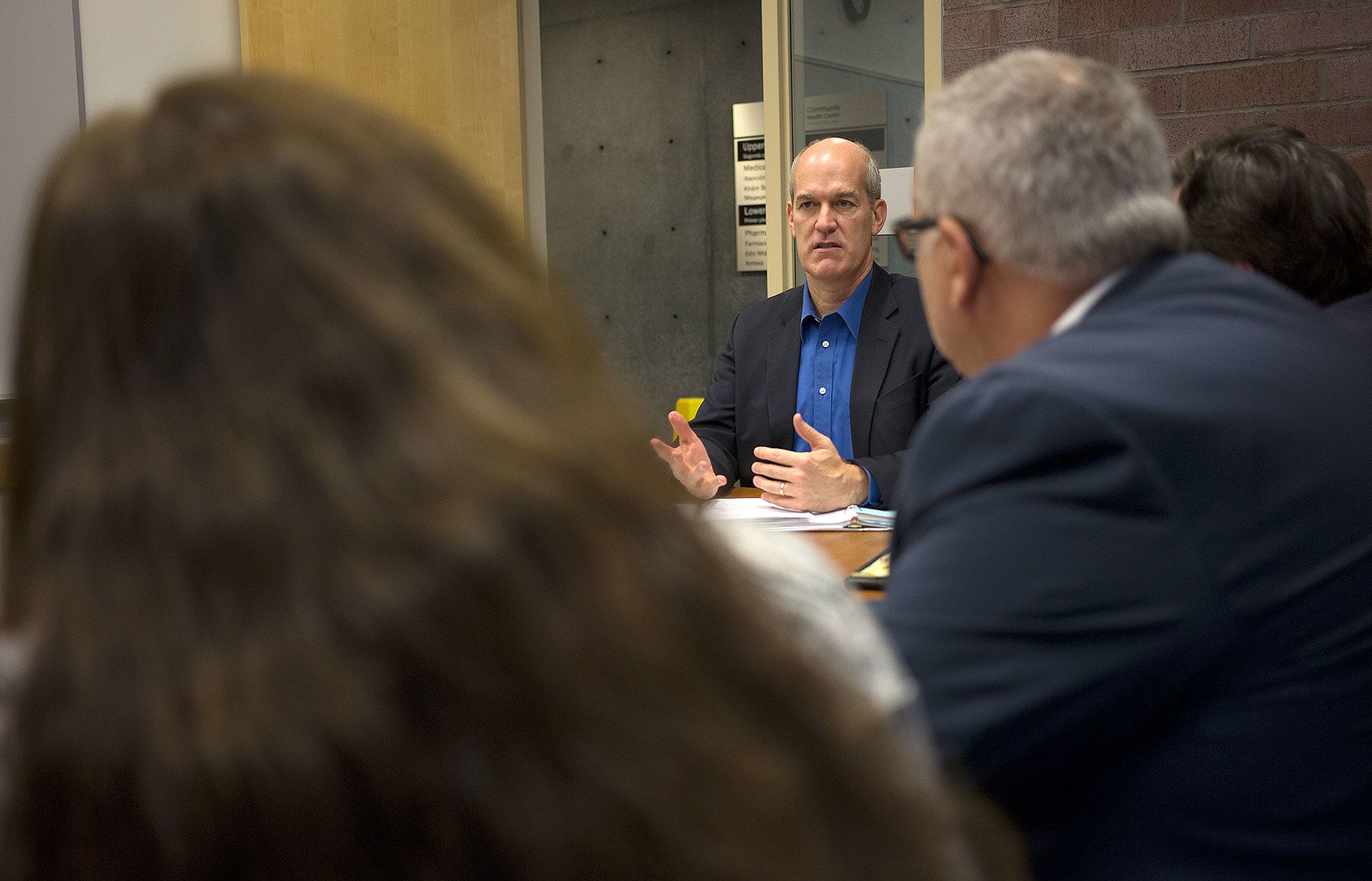EVERETT — Rep. Rick Larsen is taking the stories of hundreds of people back to Washington, D.C., to make a case for why he thinks the Affordable Care Act should stay.
Larsen visited seven cities including Everett and Mountlake Terrace this past week.
Many people want to keep the current health care system, while hoping to make tweaks. At this point, a replacement plan has not been drafted.
“Don’t turn our lives upside down now without being able to judge what’s next,” Larsen, a Democrat, said.
President-elect Donald Trump has said he wants to bring an end to the act, which is also known as Obamacare. The Senate took the first step this week toward initiating a legislative repeal.
Larsen recorded more than 360 stories from people who say the ACA improved their lives, which he plans to relay to Congress.
On Wednesday, the last day of the tour, he met in Everett with representatives of health clinics in Snohomish County.
Since the act went into effect, more patients have made appointments with the Community Health Center of Snohomish County, data show. The number of uninsured people seen at the center dropped by 10 percent since 2014. The total of registered patients increased by more than 12,000.
For many families, the ACA saved them from bankruptcy, Larsen said. It also assured parents of children with disabilities that they wouldn’t lose coverage.
That could change.
Larsen worries about those who are deemed “high risk” by insurance companies and weren’t able to secure coverage under the previous health care system.
For providers, community health clinics could face “a federal fiscal cliff,” said Bob Marsalli, CEO of the Washington Association of Community and Migrant Health Centers. Those clinics receive funding through a grant that he thinks could be in jeopardy if the ACA is repealed.
The grant accounts for nearly three-quarters of total funding for clinics in the association.
Larsen scribbled notes as he listened.
There are still a series of steps the government must go through before the repeal could become official.
“The repeal would take place on paper, but only on paper,” Larsen said.
In the meantime, there are opportunities for people to share ideas for ways to amend the act, Larsen said.
“There’s a lot of fight left in me and other Americans,” he said.
Bob Farrell, CEO of the Community Health Center of Snohomish County, is hoping changes to the system make specialty care more accessible.
“We have a lot of chronic patients,” Farrell said.
A lot of physicians are deciding to specialize in a medical field, rather than go into primary care, said Dennis Davis, the medical practice manager at the Community Health Center of Snohomish County. Clinics have had to refer patients to other providers for specialty care.
That is a big barrier to getting treatment, Davis said.
Not all physicians accept Medicaid patients, he said, and waits for appointments could take months.
The University of Washington has treated patients in that situation from Snohomish County in the past and scheduled appointments promptly. However, transportation to Seattle can be a deterrent.
“It truly is a daily challenge,” Davis said.
Caitlin Tompkins: 425-339-3192; ctompkins@heraldnet.com.
Talk to us
> Give us your news tips.
> Send us a letter to the editor.
> More Herald contact information.

























